MercoPress. South Atlantic News Agency
Antarctica
-
Monday, April 9th 2012 - 05:46 UTC
Russian yacht that went missing is en route to South American continent
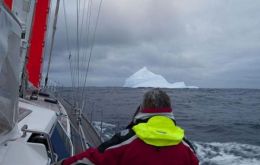
Russian-Ukrainian yacht Scorpius is sailing to a refuelling stop in southern Argentina after thick ice prevented it from taking on fuel at a coastal Russian outpost in Antarctica.
-
Monday, April 9th 2012 - 05:34 UTC
Brazilian yacht sinks crushed by Antarctic ice close to Chilean base
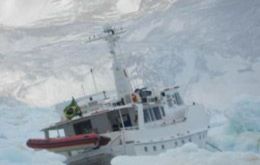
The Chilean Navy on Sunday released images of the Brazilian Yacht ‘Endless Sea’ which sank on Saturday in Antarctica. The photo shows the boat stuck in ice at Maxwell Bay, Ardley Cove, in front of the Chilean Antarctic base Presidente Eduardo Frei, reported Brazilian online media.
-
Saturday, April 7th 2012 - 06:53 UTC
Russian yacht goes missing in Antarctica en route to South Shetlands

The Scorpius yacht with a Russian-Ukrainian crew on board has gone missing off the Antarctic coast while performing a polar circumnavigation voyage, the expedition’s press service said on Friday.
-
Thursday, April 5th 2012 - 22:42 UTC
Larsen Ice Shelf continues retreating

A European satellite has reported rapid ice shelf disintegration in Antarctica’s Larsen Ice Shelf according to a news story posted yesterday on the European Space Agency’s (ESA) website, http://www.esa.int
-
Thursday, April 5th 2012 - 22:32 UTC
Antarctic: Dutch laboratories arrive at Rothera Station

As part of an international collaboration between British Antarctic Survey (BAS) and the Netherlands Polar Programme (NPP), three new containerised laboratories arrived at Rothera Research Station in Antarctica earlier this week, according to a news story posted yesterday on the BAS website: http://www.antarctica.ac.uk.
-
Wednesday, March 28th 2012 - 17:14 UTC
US retailers stop selling Antarctic toothfish
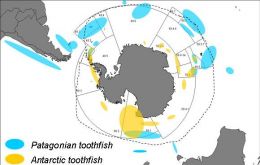
Three major US retailers announced that they have pledged not to stock endangered Antarctic toothfish. According to an article published by the environmental science and conservation news site, mongabay.com, Safeways, Wegmans and Harris Teeter have announced that they will not source fish coming from the Ross Sea.
-
Monday, March 26th 2012 - 14:07 UTC
Campaign for Antarctic Marine Reserve launched

The Antarctic Ocean Alliance, a coalition of 16 environmental groups, has launched a campaign calling for the full protection of 3.6 million square kilometres of the Ross Sea, as well as the creation of the 18 more reserves in the Southern Ocean surrounding Antarctica.
-
Sunday, March 25th 2012 - 10:17 UTC
Expedition will try to recreate 1916 Shackleton epic in replica of the James Caird
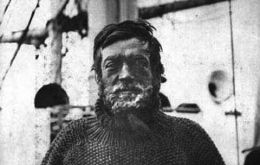
Two Royal Navy servicemen, Warrant Officer Barry 'Baz' Gray of the Royal Marines and Royal Naval Petty Officer Seb Coulthard will form part of a crew of Antarctic adventurers recreating Sir Ernest Shackleton's 1916 epic and extraordinary double mission.
-
Monday, March 19th 2012 - 14:42 UTC
HMS Protector dares ice pack to pick up scientists in remote Antarctic island
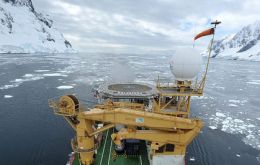
The Royal Navy’s Antarctic patrol ship HMS Protector had to punch her way through ice to first deliver, then pick up a team of scientists as the pack ice threatened to trap them – and the ship.
-
Sunday, March 18th 2012 - 19:50 UTC
HMS Illustrious, command ship in tough Arctic weather training

Royal Navy helicopter carrier HMS Illustrious is in the midst of NATO Exercise Cold Response, based in the Arctic. Illustrious is the command ship for Major General Ed Davis, Commandant General Royal Marines, who, with his Commander Amphibious Forces staff, is directing the movements of allied warships.
